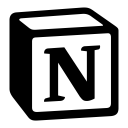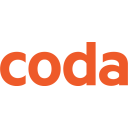Notion vs Fibery: Which tool is the best for productivity?
- 01Notion vs Fibery: overview
- 02What's the difference between Notion and Fibery?
- 03Notion pros and cons
- 04Fibery pros and cons
- 05Notion compared to Fibery
- 06Fibery compared to Notion
- 07Features comparison
- 08Notion vs Fibery: Which is the best for your business?
- 09Promotions on Collaboration software
- 10Alternatives to Notion & Fibery
Save up to $6,000 on Notion
Save up to $6,000 on Notion
Project management tools are essential for coordinating tasks and enhancing collaboration across various teams within an organization. These tools provide a centralized platform to manage projects, track progress, and facilitate communication, crucial for optimizing workflow and increasing productivity. Yet, with numerous options available, selecting the right tool can be daunting.
But we’ve got you covered. In this article, we compare two versatile project management solutions—Notion vs Fibery—and explore their shared features and key differences. Continue reading to gain insights into Notion and Fibery, and discover which tool is better suited for your business needs.
Notion vs Fibery: overview
Notion and Fibery are influential contenders in the world of productivity and project management software, each offering unique features and advantages tailored to diverse organizational needs.
Notion stands out with its all-in-one workspace that combines note-taking, task management, databases, and project tracking into a single, highly customizable interface. This flexibility makes Notion an excellent choice for individuals and teams looking for a versatile platform to organize their work and personal life. Conversely, Fibery excels with its ability to adapt to complex workflows and offers powerful integrations for software development, project management, and CRM, making it ideal for teams that require a more specialized tool to manage interconnected processes.
Now, let's dive into the Notion vs. Fibery comparison to help you make an informed decision when selecting the right project management software for your specific needs.
What's the difference between Notion and Fibery?
Notion and Fibery are prominent tools in the realm of productivity and project management, each offering unique features and capabilities. Both platforms facilitate task management, document handling, and collaboration, but they cater to different user needs and workflows, which becomes evident when examining their environments and integration possibilities.
Notion is celebrated for its highly flexible and user-friendly interface, serving as a modular workspace that combines notes, databases, kanban boards, and reminders all in one place. It’s designed to be an all-encompassing tool for individual users and teams who need a versatile platform that adapts to various purposes from personal organization to comprehensive team projects. Notion’s strength lies in its simplicity and the ability to function as a blank canvas that can be customized with templates and integrations, making it suitable for a wide range of activities and workflows.
On the other hand, Fibery is more niche in its approach, targeting teams that need a more interconnected and automated system. Fibery stands out with its ability to create complex, custom workflows that can evolve with the team's needs, integrating multiple aspects of a business like software development, project management, and CRM into a cohesive system. This makes Fibery ideal for growing startups and agile teams that require deep integration between different areas of work and a higher level of automation to manage their processes and data efficiently.
The key difference lies in their target audience and core capabilities: Notion is more of a broad-based tool that appeals to a wide audience due to its ease of use and customization potential, making it a popular choice for content management, planning, and collaboration. Fibery, however, is tailored more towards tech-savvy teams and organizations that need robust, scalable tools to handle complex, interrelated workflows and data systems.
Choosing between Notion and Fibery ultimately depends on the specific needs of your team or business—whether you prioritize a versatile and easy-to-use interface or require specialized, integrated systems to manage complex projects and processes.
Notion pros and cons
What are the advantages of Notion?
- Flexible and customizable: Notion allows users to create custom databases, pages, and templates, making it highly adaptable to different workflows and organizational needs.
- All-in-one solution: It combines note-taking, task management, database management, and collaboration features in one app, reducing the need for multiple tools.
- Rich media support: Notion supports embedding various types of media, such as images, videos, code snippets, and files, which enhances the richness of content you can create.
- Cross-platform compatibility: It works seamlessly across desktop (Windows, macOS), web, and mobile (iOS, Android) platforms, ensuring accessibility from anywhere.
- Community and templates: Notion has a thriving community that shares templates and workflows, allowing users to leverage pre-built structures for common use cases like project management, personal goals tracking, etc.
What are the disadvantages of Notion?
- Learning curve: Due to its flexibility and feature-rich nature, Notion can have a steep learning curve for new users who want to leverage its full potential.
- Performance issues: Users have reported occasional performance issues, especially when working with large databases or complex pages, leading to slowdowns or crashes.
- Limited offline functionality: While Notion has offline capabilities, they are somewhat limited compared to traditional note-taking apps, which may be a drawback for users in areas with unreliable internet access.
- Cost: Although the basic features are free, accessing advanced features like unlimited file uploads and enhanced collaboration tools requires a paid subscription, which might be a consideration for budget-conscious users.
- Dependency on internet connectivity: Notion heavily relies on internet connectivity, which can be restrictive in environments with poor or no internet access.
Compare Notion to other tools
Fibery pros and cons
What are the advantages of Fibery?
- Flexible data structures: Fibery allows for highly customizable data structures, including relational databases, boards, and tables, which can be interconnected to reflect complex relationships and workflows.
- Visual workflows: It offers visual tools like diagrams and timelines, which help teams to visualize and manage processes and dependencies more effectively.
- Integration capabilities: Fibery integrates with various third-party tools and services such as Slack, GitHub, Zapier, and more, enhancing its functionality and interoperability with existing workflows.
- Customizable views and dashboards: Users can create personalized views and dashboards to track tasks, progress, and metrics, providing flexibility in how information is presented and monitored.
- Permission control: It offers robust permission settings, allowing administrators to control access levels and permissions at a granular level, ensuring data security and confidentiality.
What are the disadvantages of Fibery?
- Complexity: Fibery's flexibility and feature set can lead to a steep learning curve for new users, especially those unfamiliar with relational databases or complex project management tools.
- Limited native integrations: While Fibery supports integrations through Zapier and API, its native integrations with popular tools may be more limited compared to other project management platforms.
- User interface: Some users find the user interface to be less intuitive or visually appealing compared to other project management tools, which can impact usability and adoption.
- Performance: Users have reported occasional performance issues, particularly with large datasets or complex workflows, which can result in delays or sluggishness.
- Cost: Fibery's pricing structure can be a consideration, as advanced features and additional users are available through paid plans, which might be a factor for smaller teams or startups with budget constraints.
Compare Fibery to other tools
Notion compared to Fibery
Notion and Fibery both offer powerful tools for team productivity and project management. Notion excels in its intuitive interface and wide-ranging versatility, supporting notes, databases, and task management in a cohesive platform. It's ideal for personal use and smaller teams needing flexible organization.
In contrast, Fibery specializes in complex workflows with customizable data structures and visual management tools like diagrams and timelines. It's suited for larger teams and projects requiring detailed process management and integration capabilities.
Is Notion better than Fibery?
When comparing Notion and Fibery, it's essential to consider user-specific needs as both platforms cater to different organizational demands. Notion’s strength lies in its user-friendly setup, which requires minimal onboarding, making it a favorite among startups and creative teams.
On the other hand, Fibery offers robust features for workflow automation and is highly adaptable to various software development methodologies, including Agile and Scrum. This makes Fibery a superior choice for tech teams and enterprises needing to streamline complex projects.
What is Notion best used for?
Notion excels as a versatile tool for personal organization and collaborative workspaces. It's ideal for managing tasks, notes, and projects seamlessly in one platform. Notion's customizable databases and templates cater to various needs, from simple to complex workflows, making it popular among individuals, students, and small teams. Its rich media support and cross-platform compatibility enhance usability across devices and tasks.
Whether for personal task management, team collaboration, or creating knowledge bases, Notion offers flexibility and efficiency in organizing information and workflows effectively. Its intuitive interface and community-driven templates further enhance its appeal for users seeking adaptable productivity solutions.
Can Notion replace Fibery?
Notion and Fibery serve distinct purposes in productivity and project management. While Notion excels in its user-friendly interface and versatility for personal and small team organization, Fibery focuses on complex workflows with customizable data structures and advanced visual management tools. Notion's strength lies in its simplicity and broad application across various tasks and projects, whereas Fibery offers deeper customization and integration capabilities suited for larger teams and intricate processes.
Whether Notion can replace Fibery depends on specific organizational needs—Notion for general organization and collaboration, Fibery for detailed workflow management and extensive integrations—making them complementary rather than direct replacements.
Is Notion cheaper than Fibery?
Notion is generally considered more cost-effective than Fibery for most users. Notion offers a free plan with basic features that suffice for many personal and small team needs. Its paid plans are competitively priced, providing enhanced features like unlimited file uploads and advanced collaboration tools at affordable rates.
In contrast, Fibery's pricing structure may be higher, especially for larger teams needing extensive customization and integrations. While both platforms offer value based on specific requirements, Notion's accessible pricing makes it a popular choice for those seeking a robust yet economical solution for task management, note-taking, and collaborative workspaces.
Is there a better Collaboration software than Notion?
While Notion is highly regarded for its flexibility and productivity features, it's important to explore whether another software might better suit your specific needs.
There are several alternatives to Notion in the productivity and project management space worth considering, such as Airtable, ClickUp, Trello, Asana, and Monday.com. Each of these platforms offers unique strengths, whether it's advanced task management, team collaboration, or specific workflow customization capabilities. The choice ultimately hinges on factors like the complexity of your projects, team size, integration requirements, and preferred user interface, ensuring you find the best fit for optimizing your productivity and organizational workflows.
6 months free on the Plus plan with Unlimited AI on Notion
Get 6 months free on the Plus plan with Unlimited AI on Notion and up to $6,000 savings with Secret.
Fibery compared to Notion
Fibery and Notion cater to different aspects of productivity and project management. Fibery specializes in complex workflows and customizable data structures, offering advanced visual tools like diagrams and timelines for detailed process management. It's geared towards larger teams needing extensive customization and integration capabilities.
In contrast, Notion excels in its intuitive interface and versatility, supporting notes, databases, and task management seamlessly within one platform. It's ideal for personal organization and small team collaboration with flexible templates and media-rich content support.
Is Fibery better than Notion?
Deciding whether Fibery is superior to Notion hinges on the specific requirements of an organization's project management framework. For enterprises focused on scalability and detailed operational oversight, Fibery proves advantageous with its ability to handle intricate data relationships and extensive automation. It is particularly beneficial for businesses that engage in software development or any field where workflow complexity is high.
In contrast to Notion's broad applicability, Fibery's specialized tools for agile management and custom integrations make it invaluable for larger organizations that demand rigorous, detailed planning and execution capabilities to support dynamic project landscapes.
What is Fibery best used for?
Fibery is best used for managing complex workflows and processes within teams. Its customizable data structures and visual management tools, such as diagrams and timelines, make it ideal for detailed project management and task tracking. Fibery excels in environments where interconnectedness and deep customization are essential, accommodating diverse team needs and workflow complexities. It supports collaboration across different functions and departments, enhancing transparency and efficiency in handling large-scale projects.
Whether for software development, product management, or operations, Fibery empowers teams to streamline processes, visualize dependencies, and integrate seamlessly with other tools, ensuring comprehensive and effective workflow management.
Can Fibery replace Notion?
Fibery and Notion serve distinct purposes in productivity and project management. While Fibery excels in managing complex workflows with customizable data structures and advanced visual tools, Notion focuses on versatile personal organization and collaborative workspaces. Fibery's strength lies in its ability to handle intricate processes and interconnected workflows across large teams, whereas Notion offers simplicity and broad applicability for individuals and small teams.
Whether Fibery can replace Notion depends on specific organizational needs—Fibery for detailed workflow management and integration capabilities, Notion for general task management and flexible organization—making them complementary tools rather than direct substitutes.
Is Fibery cheaper than Notion?
Fibery's pricing structure may vary based on team size and feature requirements, potentially making it more costly than Notion for some users. While Notion offers a free plan with basic features and affordable paid options for expanded functionality, Fibery's pricing tends to cater to larger teams needing extensive customization and integration capabilities.
The choice between Fibery and Notion depends on budget considerations alongside specific needs—whether for detailed workflow management and advanced tools in Fibery or versatile personal organization and collaboration features in Notion.
Is there a better Productivity software than Fibery?
While Fibery is highly regarded for its customizable data structures and advanced workflow management tools, it's crucial to explore whether another software might better align with your specific requirements.
There are several notable alternatives to Fibery in the productivity and project management space worth considering, such as Notion, Coda, Miro, Wrike, and Teamwork. Each of these platforms offers unique strengths, whether it's intuitive task management, team collaboration features, or specialized workflow customization capabilities.
The choice ultimately depends on factors like the complexity of your projects, team size, integration needs, and preferred user interface, ensuring you find the best-fit solution for optimizing productivity and managing workflows effectively.
Features comparison
Fibery Enables Advanced Workflow Automation Through Custom App Creation
Fibery distinguishes itself by empowering users to create custom apps and automate workflows seamlessly, even without coding expertise. This capability allows teams to design tailored solutions that precisely fit their operational needs, from complex project management to detailed process automation. For instance, teams can develop custom databases, integrate specific functionalities, and automate tasks within Fibery's versatile platform.
In contrast, while Notion excels in flexibility and collaborative tools, it does not offer the same level of customization and workflow automation through custom app creation as Fibery does, making Fibery the preferred choice for organizations seeking advanced process optimization and tailored workflow solutions.
Notion's User-Friendly Interface Surpasses Fibery's Complexity
When considering the ease-of-use, Notion outshines Fibery with its intuitive design tailored to simplify intricate tasks. Notion's interface facilitates effortless navigation and quick acclimation for new users, minimizing the need for extensive training. Features like drag-and-drop functionality enhance organizational efficiency, allowing seamless management of data and tasks.
In contrast, Fibery, while powerful, presents a steeper learning curve and a more intricate interface that may pose challenges to beginners. Therefore, for users prioritizing a streamlined and intuitive experience without compromising on functionality, Notion emerges as the preferred choice for enhancing productivity and collaborative workflows.
Notion and Fibery are Equal at Visual Data Representation
Notion and Fibery leverage visual data presentation effectively, each offering unique strengths tailored to different user needs. Notion's database gallery enhances data interaction with features like drag-and-drop boards and customizable filters, facilitating intuitive data organization and visualization. In contrast, Fibery specializes in advanced data analysis with custom visualizations and dynamic charts, allowing for detailed insights and trend analysis within complex workflows.
Both tools empower users to manage and present data effectively, albeit with distinct approaches—Notion focusing on user-friendly interactivity, and Fibery on robust analytical capabilities—making them valuable choices depending on the depth of data visualization and analysis required for organizational tasks.
Fibery Excels in Integration Capabilities Over Notion
Examining integration capabilities, Fibery takes the lead. Fibery seamlessly integrates with a wide range of applications including project management tools and CRM systems, creating a more interconnected and efficient workspace. This robust integration ecosystem enables businesses to streamline workflows and consolidate operations within a single platform, reducing the need for toggling between multiple tools.
In comparison, while Notion offers some integrations, its scope is more limited compared to Fibery's expansive suite. Therefore, organizations seeking comprehensive integration solutions to enhance operational efficiency may find Fibery better suited to their needs.
Notion's Comprehensive Task Database Outshines Fibery's Planning Tools
Notion distinguishes itself with a robust task database that centralizes all projects and tasks, facilitating efficient progress tracking, deadline management, and team collaboration. This feature-rich database allows users to create customized workflows, assign tasks, and monitor updates seamlessly.
In contrast, while Fibery offers planning and publishing capabilities, it doesn't match the integrated depth and functionality of Notion's task management system. For users prioritizing consolidated task management and collaborative efficiency, Notion's comprehensive database proves superior in providing a cohesive workspace for organizing and executing projects effectively.
Fibery Enhances Team Collaboration with Integrated Communication Features
In comparing team collaboration tools, Fibery stands out for its integrated communication capabilities that streamline intra-team interactions. With built-in chat functionality and an integrated email client, Fibery ensures seamless communication among team members within the platform. This integrated approach enhances real-time collaboration, simplifies project discussions, and reduces the need to switch between multiple applications.
In contrast, while Notion provides robust collaboration features, it lacks integrated communication tools comparable to Fibery's, which may necessitate external tools for team discussions and coordination. For teams prioritizing efficient and centralized communication alongside collaborative workflows, Fibery offers a distinct advantage.
Notion's Extensive Template Customization Enhances Business Flexibility
Notion stands out for its robust template library, offering customizable templates that cater to diverse business requirements, enhancing productivity and efficiency. Users can tailor templates for project management, task tracking, knowledge bases, and more, adapting them to specific workflows and team needs. This extensive customization capability empowers businesses to streamline operations and maintain consistency across projects.
In contrast, while Fibery supports custom app and workflow creation, it lacks the breadth and ease of use found in Notion's pre-designed templates, making Notion the preferred choice for businesses seeking comprehensive and adaptable solutions for organizational workflows and project management.
Subscribe to our newsletters.
No FOMO here. Stay up-to-date on all the latest deals and news with our monthly newsletter straight to your inbox like 126,000+ entrepreneurs (+ Get 10% off on on our Premium Membership!)
Notion vs Fibery: Which is the best for your business?
Notion is the best tool for you if:
- You value a clean, user-friendly interface that simplifies task management, note-taking, and database handling without a steep learning curve.
- Your workflow involves integrating various types of content such as text, tasks, databases, and media into a single, streamlined platform.
- You need a flexible tool that can be easily adapted to personal use, educational purposes, or small business management without requiring extensive customization.
- Collaboration and sharing are at the core of your work, requiring real-time updates and edits across a team in a highly accessible format.
- You prefer having access to a vast library of templates and community-built customizations that can help kickstart your projects quickly and efficiently.
Fibery is the best tool for you if:
- You need advanced tools for managing complex workflows that involve customizable data structures, automation, and integration with other enterprise systems.
- Your projects require detailed tracking and visualization through sophisticated tools like whiteboards, timelines, and entity relationship diagrams.
- Scalability is a priority, and you're looking for a platform that can grow with your team's needs, handling large volumes of data and users seamlessly.
- You operate within a tech-savvy environment where software development methodologies such as Agile and Scrum are employed to manage processes.
- Integration capabilities are essential, and you need to connect and synchronize with multiple external systems and tools to maintain workflow efficiency.
Alternatives to Notion & Fibery
Promotions on Collaboration software
Start saving on the best SaaS with Secret.
Secret has already helped tens of thousands of startups save millions on the best SaaS like Notion, Fibery & many more. Join Secret now to buy software the smart way.















